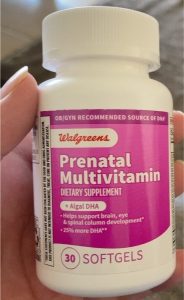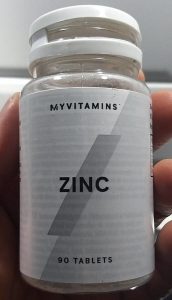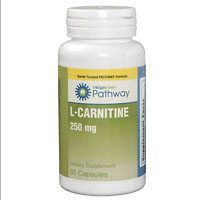Can males take prenatal vitamins? Pregnant women are not the only ones who need to take prenatal supplements. Males can also benefit from taking them if they wish to. In a way, they are just like dietary supplements, but they don’t target dietary issues but rather issues regarding nutrients that affect fertility.

Since men have different nutritional needs than women, male pre-natal multivitamins should be tailored to fit their dietary needs, providing a month supply of essential building blocks according to the latest research, ensuring they receive the right nutrients. If you’re not sure about the nutrients you need, you can consult a health professional. Here are some of the ways that men can benefit from taking pre-natal supplements.
Supplements For Fertility
What Exactly Are Prenatal Supplements?
For women trying to get pregnant or are having female fertility issues, a pre-natal vitamin is a supplement that provides the essential nutrients they require.
A nutrition safety net, prenatals ensure that your body has everything it needs for a healthy pregnancy and baby. However, if you’re aiming for a healthy pregnancy, keep in mind that they should not be used as a replacement for a healthy diet or some dietary supplements; rather, they should be used in conjunction with them. Fertility supplements won’t do much if you yourself don’t practice a healthy diet and healthy lifestyle.
While pregnant, your body’s nutritional demands change. You’ll require more iron, calcium, vitamin B complexes, vitamins A and C, as well as omega-3 fatty acids. One may be familiar with some of these nutrients already through taking dietary supplements.
However, these requirements are not limited to the nine months of pregnancy. Therefore, you should start taking supplements as early in your cycle as possible for a healthy pregnancy. The sooner you quit taking birth control and start trying, the better, especially if you’re considering fertility treatment.

Can Men Take Prenatal Supplements?
Yes, they can be taken by guys, especially by male infertility patients who may seek assistance from a fertility clinic. However, sharing prenatals with your wife or partner may not be the best choice. Male and female nutrition demands are distinct, so you can’t use your wife’s fertility supplements, and vice versa. The majority of pre-natal supplements are typically tailored to meet a female’s requirements during pregnancy. For instance, women’s prenatals contain docosahexaenoic acid (DHA) to reduce the risk of pregnancy complications. As a result, they may not be the greatest choice for a man who wants to increase and support male fertility through artificial means.
During pregnancy, women require approximately 27 mg of iron daily for a healthy baby, while most males only require about 8 mg (NIH, 2022). Excessive iron intake can lead to side effects such as constipation and nausea. To support their partners’ health, some husbands may choose to take pre-natal multivitamins designed for men for at least three months.
This means that guys should probably not take a standard pre-natal supplement meant for women. Even so, if you’re attempting to conceive with your spouse, taking supplements could aid in supporting male fertility. It’s recognized that nutrient shortages may damage a man’s general reproductive health and healthy sperm production (Giahi, 2016). (Giahi, 2016), which is why it is good to take pre-natal supplements for someone suffering from male infertility and female fertility issues.
To be clear, supplements by themselves won’t resolve male infertility issues such as idiopathic male infertility. However, they can complement a balanced diet and lifestyle to provide some benefits, as recommended by doctors, especially when using a one month supply of the formula. This is particularly true when using a high-quality formula containing ingredients like d-alpha tocopheryl succinate and N-acetyl cysteine. They are half the equation in achieving optimal support conception. Consult with your doctor first if you’re planning to take pre-natal supplements, and make sure to follow the recommended intake. They’re the ones who can give you a prescription with regards to the best multivitamin that can target male infertility issues.
Sperm Motility & Sperm Health
Supplements That Can Help Boost Male Fertility
Nutrition is a major component of traditional supplements. These can be considered some of the best vitamins for men. Male supplements are specifically formulated to support male fertility by enhancing sperm motility and improving sperm count. Millions of new sperm are produced each day and mature in about three months, and sperm health is important for successful conception. There may be some overlap in the ingredient lists of one multivitamin to another, but that’s to be expected.
In male fertility supplements, you may find a variety of nutrients such as zinc, vitamin C, vitamin E, vitamin D, folic acid, L-carnitine, and more.
-
Zinc
Low zinc levels have been associated with low testosterone levels or low sperm count. Zinc aids sperm in fusing with and penetrating an egg, which may boost healthy sperm count and overall sperm function. It’s also possible that it’ll help increase testosterone levels. As a result, some studies have linked low levels of testosterone to male infertility.
Zinc supplementation, on the other hand, appears to be ineffective in the 2020 research.
The recommended daily dose of zinc is 40 milligrams, and any more than that may result in unpleasant side effects like a runny nose.

-
Folic Acid
According to preliminary 2008 research, folate or folic acid may lower the number of defective sperm cells, thus increasing healthy sperm count. It is also found that getting enough of folic acid will decreased the effects of birth defects which is why folic acid is good for men and women. On the other hand, a 2020 study found no improvements in semen or sperm quality or male fertility rates in guys receiving more zinc and folic acid. Therefore, these effects which are gotten from folic acid are questionable.
If you’re not pregnant or breastfeeding, don’t exceed 400 micrograms (mcg) a day of folic acid in your diet. Just take the right amount of folic acid.
-
L-carnitine
L-carnitine is made by your liver, brain, and kidneys from amino acids. Due to the fact that the majority of people produce more than enough, no dietary supplements are recommended.
L-carnitine, on the other hand, has been shown to improve sperm health, enhance sperm quality, and increase sperm mobility, as demonstrated in a 2012 study. However, it does not support sperm count. L-carnitine improved sperm motility and general health, but it did not raise the likelihood of spontaneous conception, according to a recent 2020 study

-
Selenium
Selenium is essential for human reproduction, DNA synthesis, and defense against infection and free radicals.
Supplementing with daily doses of vitamin E, d alpha tocopheryl succinate, and selenium for 100 days helped boost sperm motility and improve sperm quality, including shape, size, and appearance, in more than half of the 690 men who participated in the research study, indicating the potential benefits of sperm support. This provides evidence based support for their overall health.
It’s recommended that adults need about 55 mcg per day, while pregnant women need 60 mcg per day, and lactating mothers need 70 mcg per day. If you’re planning to take supplements, make sure to get the proper dosage to ensure semen parameters are supported.
-
Vitamin E and Vitamin C
Strong antioxidants like vitamins C and E, including ascorbic acid, are found in seminal fluid and shield sperm from oxidative damage. Unlike vitamin E, which is fat-soluble, vitamin C is water-soluble. According to some studies about reproductive health, it’s possible that males with reproductive problems have lower concentrations of vitamins c and e in their semen. Vitamin C also has powerful antioxidants. Get an adequate amount of these vitamins by eating healthy food.
According to a 2011 study, consuming vitamin E and selenium together boosted sperm motility. A 2016 analysis highlighted that although oxidative stress significantly contributes to male infertility and DNA damage, supplementation with vitamin E, vitamin C, and N-acetyl cysteine (NAC) did not consistently provide assistance. Thus, results from vitamin c and vitamin e are still mixed. On the other hand, it is shown that vitamin D can also be beneficial for male fertility. Low levels of vitamin D are associated with impaired semen quality, so make sure to incorporate a good amount of vitamin d in your diet.
According to the authors, taking male fertility supplements containing a combination of selenium, l-carnitine, and vitamins E and C may enhance sperm concentration, mobility, and sperm quality but may not have a positive impact on pregnancy rates or pregnancy outcomes.
The daily recommended amount of vitamin E is 15 mg for enhancing sperm concentration and quality. Avoid exceeding 180 mg at all costs because doing so can raise your risk of developing prostate cancer. Aim for 90 mg of vitamin C every day.

-
CoQ10
Coenzyme Q10 is a coenzyme that functions as an antioxidant, inhibits the formation of damaging free radicals, and is essential for DNA replication and repair.
Men with specific sperm and male infertility issues who use CoQ10 male fertility supplements may see an improvement in their sperm characteristics. A study published in 2019 found that supplementing with CoQ10 could dramatically boost sperm concentration and motility. When compared to those taking 200 mg a day, the alterations were more pronounced in those receiving 400 mg.
Can men take prenatal supplements? The short answer is yes, but there should special considerations. Bookmark Family Hype now for more health tips.
- DHA and EHA
Docosahexaenoic acid and eicosapentaenoic acid are also good ingredients to have in men’s prenatals since these fatty acids directly affect sperm quality. This is an important factor, especially if you are trying to conceive.
Frequently Asked Questions
Is It Okay For Men’s Health to Take Pre-natal Supplements?
How Do Prenatals Affect Male Fertility?
When Should Men Start Taking Prenatals?
What Is The Best Way To Boost Male Fertility?
Some of the best vitamins for male fertility are men’s prenatal vitamins. They serve as anti-oxidants which protect the body’s cells from damage from stress and other free radicals.
What Supplements Are Good For Sperm?
Do Male Fertility Pills Actually Work?
How Long Should Males Take Prenatals?
What Can Help Make Sperm Stronger?
What Can I Do To Improve My Sperm Quality?
How Can You Tell If A Man Is Fertile?
Do Multivitamins Help Increase Your Sperm Count?
What Are The Benefits Of Taking Male Prenatal Supplements?
Are These Supplements Approved By The FDA?
What Are The Side Effects If A Man Takes Prenatal Supplements?
What Does Folic Acid Do For Men?
Last Updated on May 10, 2023 by Inma Barquero
DISCLAIMER (IMPORTANT): This information (including all text, images, audio, or other formats on FamilyHype.com) is not intended to be a substitute for informed professional advice, diagnosis, endorsement or treatment. You should not take any action or avoid taking action without consulting a qualified professional. Always seek the advice of your physician or other qualified health provider with any questions about medical conditions. Do not disregard professional medical advice or delay seeking advice or treatment because of something you have read here a FamilyHype.com.